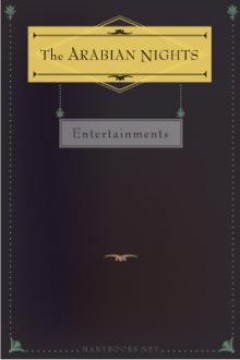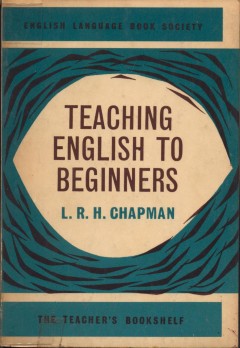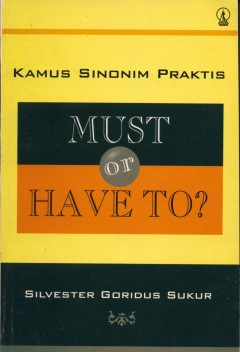Ditapis dengan

E-Book The Arabian Nights
A medieval Middle-Eastern literary epic which tells the story of Scheherazade, a Sassanid Queen, who must relate a series of stories to her malevolent husband, the King, to delay her execution. The stories are told over a period of one thousand and one nights, and every night she ends the story with a suspenseful situation, forcing the King to keep her alive for another day. The individual stor…
- Edisi
- -
- ISBN/ISSN
- 0375756752
- Deskripsi Fisik
- 277 halaman
- Judul Seri
- -
- No. Panggil
- 823

Ebook A Connecticut Yankee in King Arthur's Court
An extravagant but cleverly planned burlesque that works as a condemnation of Chivalry, one of Twain's chief aversions.
- Edisi
- -
- ISBN/ISSN
- 9780520268166
- Deskripsi Fisik
- 352
- Judul Seri
- -
- No. Panggil
- 827
E-book Beowulf: A Translation
The Old English poem known in the modern era as Beowulf consists of some 3182 lines of alliterative verse. The poem is preserved on folios 129r to 198v of a unique and badly damaged Anglo-Saxon manuscript sometimes called the ‘Nowell Codex’ and now known by its shelf mark as the London, British Library, MS. Cotton Vitellius A.xv. The text was copied by two dif…
- Edisi
- -
- ISBN/ISSN
- 9780615612652
- Deskripsi Fisik
- 314 hlm
- Judul Seri
- -
- No. Panggil
- 829 MEY b
E-book The Castle of Otranto
Manfred, Prince of Otranto, had one son and one daughter: the latter, a most beautiful virgin, aged eighteen, was called Matilda. Conrad, the son, was three years younger, a homely youth, sickly, and of no promising disposition; yet he was the darling of his father, who never showed any symptoms of affection to Matilda. Manfred had contracted a marriage for his son with the Marquis of Vicenza�…
- Edisi
- -
- ISBN/ISSN
- -
- Deskripsi Fisik
- 87 hlm
- Judul Seri
- -
- No. Panggil
- 823 WAL t
E-book The Norton Anthology of English Literature
She wrote political pamphlets in the 1790s, opposing Britain's declaration of war against France, defending democratic government and popular education, and campaigning for the repeal of the Test Acts that had long excluded Nonconformist Protestants (those who would not subscribe, as a "test" of their loyalty, to the thirty-nine Articles of the Established Church) from the public life of the na…
- Edisi
- 8th ed.
- ISBN/ISSN
- 0393925323
- Deskripsi Fisik
- 3023 hlm
- Judul Seri
- -
- No. Panggil
- 823 CHR t
E-book One Great Family : Domestic Relationships in Samuel Richardson’s Novels
But that I may know with certainty how far we agree or differ, will you give me leave,for once, to be a saucy girl, and catechise my adopted papa? Though indeed I do notmean to do it saucily, but really and truly for my information. For when you left itto me to make the applications, inferences, and conclusions, from all the quotations,stories, and observations you produced, you left me a task …
- Edisi
- -
- ISBN/ISSN
- 9783772057311
- Deskripsi Fisik
- 297 hlm
- Judul Seri
- -
- No. Panggil
- 823 HOH o
E-book Moonbit
This collaboratively authored work, much like the object that has inspired it, is nonlinear and modular. It has been compiled together from several smaller component parts. We invite you to read this book accordingly. We have provided a series of experimental readings — just a few of what we be-lieve to be the numerous explorations of the creative possibilitie…
- Edisi
- -
- ISBN/ISSN
- 9781950192342
- Deskripsi Fisik
- 151 hlm
- Judul Seri
- -
- No. Panggil
- 821 DOB m
E-book The Book Or The Woods
art the forest & bare the trees. Make an efes. The Book of books may be a forest of woods, as the page is a clearing, the monster is a letter (for example, Y, who reads the leaves), a river is a mirror, the underworld is supernal, the portal is the shadow over the shades, efes are all about (as wings, as aisles, as the edge of the woods), ††† are trees,…
- Edisi
- -
- ISBN/ISSN
- 9781953035523
- Deskripsi Fisik
- 311 hlm
- Judul Seri
- -
- No. Panggil
- 821 JOH t
E-book The Tale of Tales : The Book Collection
Every Silversea guest knows from personal experience that stories and travel are close companions. Yet the two have never been so deeply interwoven as they were for the Silversea Tale of Tales World Cruise 2019. This anthology celebrates all those who were part of that extraordinary voyage. Those who travelled further into the world to discover its beauty. Those who were fascinated, amazed and …
- Edisi
- -
- ISBN/ISSN
- -
- Deskripsi Fisik
- 70 hlm
- Judul Seri
- -
- No. Panggil
- 821 MUC t
E-book Foundation and Empire
Riose looked after his host’s departing figure, and his studied urbanity grew a bit uncertain at the edges. His education had been purely military; his experience likewise. He had, as the cliché has it, faced death many times; but always death of a very familiar and tangible nature. Consequently, there is no inconsistency in the fact that the idolized lion of the Twentieth Fleet felt chilled…
- Edisi
- -
- ISBN/ISSN
- -
- Deskripsi Fisik
- 263 hlm
- Judul Seri
- -
- No. Panggil
- 823 ASI f
E-book The Poems of the Pearl Manuscript
Our intention has been to translate the poems into plain and unadorned prose, staying as close to the original as modern English idiom will allow, in order to reveal what may loosely be termed the ‘literal’ sense of the text. Readers approaching these poems from an acquaintance with Chaucer’s works will already be aware that one of the chief difficulties of Middle English for the modern r…
- Edisi
- -
- ISBN/ISSN
- -
- Deskripsi Fisik
- 148 hlm
- Judul Seri
- -
- No. Panggil
- 823 AND t
E-book What Literature Knows : Forays into Literary Knowledge Production
The preface to Jonathan Swift’s The Battle of the Books (1704) begins with a rather unconventional definition of a literary genre� Readers are informed that “Satyr is a sort of Glass, wherein Beholders do generally discover every body’s Face but their Own” (Tale 140)� The writer does not hesitate to add that it is probably this characteristic which is responsible for the genre’s c…
- Edisi
- -
- ISBN/ISSN
- 9783631757864
- Deskripsi Fisik
- 344 hlm
- Judul Seri
- -
- No. Panggil
- 820 KLE w
E-book Poems of 1890 : A Selection
In the same year he published his first Dutch poetry in the influential magazine De nieuwe gids (The New Guide). The journal, founded in 1885, was dominated at this period by the poet Willem Kloos (1859–1938), who used its pages to proclaim a radical aestheticism and advocate literature that was both non-sectarian and non-utilitarian. Poetry, Kloos famously asserted, was ‘the supremely indi…
- Edisi
- -
- ISBN/ISSN
- 978-1-910634-12-7
- Deskripsi Fisik
- 99 hlm
- Judul Seri
- -
- No. Panggil
- 821 GOR p
E-book Snow White and Other Stories
Once upon a time in midwinter, when the snowflakes were falling like feathers from heaven, a queen sat sewing at her window, which had a frame of black ebony wood. As she sewed she looked up at the snow and pricked her finger with her needle. Three drops of blood fell into the snow. The red on the white looked so beautiful that she thought to herself, “If only I had a child as white as snow, …
- Edisi
- -
- ISBN/ISSN
- -
- Deskripsi Fisik
- 146 hlm
- Judul Seri
- -
- No. Panggil
- 823 PER s
E-book Cinderella, Rumpelstiltskin, and Other Stories
Once upon a time there was a gentleman who married, for his second wife, the proudest and most haughty woman that ever was seen. She had two daughters of her own, who were, indeed, exactly like her in all things. The gentleman had also a young daughter, of rare goodness and sweetness of temper, which she took from her mother, who was the best creature in the world. The wedding was scarcely over…
- Edisi
- -
- ISBN/ISSN
- -
- Deskripsi Fisik
- 147 hlm
- Judul Seri
- -
- No. Panggil
- 823 PER c
E-book First Anthology : Hera The Light of Women
The founder of Hera the Light of Women, Mrs. Marianela Mirpuri told me about her idea to have a Poetry Anthology and challenged me to write and coordinate the first anthology for Hera the Light of Women. My first feelings where if I should be able to do it and thank her for trusting me. Then doubts came into my spirit, as I was not used, since long time to write in English (besides Hera’s hym…
- Edisi
- -
- ISBN/ISSN
- -
- Deskripsi Fisik
- 79 hlm
- Judul Seri
- -
- No. Panggil
- 820 LOU f
E-book Anthology of Classical Myth
Since the stories told by poets and other early writers represented the major evidence for the events for which the Greeks had no written records, historians could not escape considering the role of myth in history. One approach—represented here by Herodotus’ and Thucydides’ analyses of the Trojan, Persian, and Peloponnesian Wars—was to seek to distinguish where myth left off and histor…
- Edisi
- 2nd ed
- ISBN/ISSN
- 978-1-62466-499-1
- Deskripsi Fisik
- 608 hlm
- Judul Seri
- -
- No. Panggil
- 820 TEA a
E-book The Myths and Legends of Ancient Greece and Rome
Before entering upon the many strange beliefs of the ancient Greeks, and the extraordinary number of gods they worshipped, we must first consider what kind of beings these divinities were. In appearance, the gods were supposed to resemble mortals, whom, however, they far surpassed in beauty, grandeur, and strength; they were also more commanding in statue, height being considered by the Greeks …
- Edisi
- -
- ISBN/ISSN
- -
- Deskripsi Fisik
- 295 hlm
- Judul Seri
- -
- No. Panggil
- 820 BER t
E-book Poems of Guido Gezelle : A Billingual Anthology
Guido Gezelle, born in Bruges in 1830, left a varied œuvre as a man of letters, journalist, translator and populariser. But it is mainly as a poet that he occupies an illustrious position in the history of Dutch literature. He is undoubtedly the most innovative and original Flemish poet between 1680 and 1880. With his exceptional lyrical poetry he was some twenty years ahead of the renewal mov…
- Edisi
- -
- ISBN/ISSN
- 978-1-910634-94-3
- Deskripsi Fisik
- 253 hlm
- Judul Seri
- -
- No. Panggil
- 821 VIN p

Teaching english to begginners
- Edisi
- -
- ISBN/ISSN
- -
- Deskripsi Fisik
- 139 hlm. 12 x 18 cm
- Judul Seri
- -
- No. Panggil
- 423 CHA t
- Edisi
- -
- ISBN/ISSN
- -
- Deskripsi Fisik
- 139 hlm. 12 x 18 cm
- Judul Seri
- -
- No. Panggil
- 423 CHA t

500 Everydays Questions to Write or Talk About at Public Places
Semakin banyak kosa kata atau vocabulary yang dikuasai dalam salah satu bahasa, semakin mahir seseorang berkomunikasi dalam bahasa tersebut. Prinsip ini berlaku dalam semua bahasa, termasuk bahasa Inggris. Ada banyak cara untuk menguasai kosa kata. Mengenal berbagai pertanyaan yang kerap dilontarkan dalam bahasa yang hendak dipelajari menjadi salah satu caranya. Buku ini berisi 500 pertanyaa…
- Edisi
- -
- ISBN/ISSN
- 978-602-3751-05-1
- Deskripsi Fisik
- 284. 13,5 cm x 20 cm
- Judul Seri
- -
- No. Panggil
- 428 SUS l

Kamus sinonim praktis "Must or have to?"
- Edisi
- -
- ISBN/ISSN
- 979-672-826-5
- Deskripsi Fisik
- -
- Judul Seri
- -
- No. Panggil
- 423 SUK k
- Edisi
- -
- ISBN/ISSN
- 979-672-826-5
- Deskripsi Fisik
- -
- Judul Seri
- -
- No. Panggil
- 423 SUK k

Understanding and improving your personality and self images.
- Edisi
- -
- ISBN/ISSN
- 978-971-707-041-5
- Deskripsi Fisik
- v+150 hlm. 15 x 23 cm
- Judul Seri
- -
- No. Panggil
- 428 ACA u
- Edisi
- -
- ISBN/ISSN
- 978-971-707-041-5
- Deskripsi Fisik
- v+150 hlm. 15 x 23 cm
- Judul Seri
- -
- No. Panggil
- 428 ACA u

Beacon Lights of Literature.
- Edisi
- -
- ISBN/ISSN
- -
- Deskripsi Fisik
- xvi+751 hlm; 14 x 20 cm
- Judul Seri
- -
- No. Panggil
- 428 CHA b
- Edisi
- -
- ISBN/ISSN
- -
- Deskripsi Fisik
- xvi+751 hlm; 14 x 20 cm
- Judul Seri
- -
- No. Panggil
- 428 CHA b

Mark My Words : A Guide to modern usage and expression.
- Edisi
- -
- ISBN/ISSN
- -
- Deskripsi Fisik
- 687 hlm; 14 cm x 21 cm
- Judul Seri
- -
- No. Panggil
- 418 OPD m
- Edisi
- -
- ISBN/ISSN
- -
- Deskripsi Fisik
- 687 hlm; 14 cm x 21 cm
- Judul Seri
- -
- No. Panggil
- 418 OPD m

HARRY POTTER AND THE DEATHLY HALLOWS
- Edisi
- 1 cet. 1
- ISBN/ISSN
- 978-0-74759105-
- Deskripsi Fisik
- 607 hlm;13.5 x 20 cm
- Judul Seri
- -
- No. Panggil
- 823 ROW h
- Edisi
- 1 cet. 1
- ISBN/ISSN
- 978-0-74759105-
- Deskripsi Fisik
- 607 hlm;13.5 x 20 cm
- Judul Seri
- -
- No. Panggil
- 823 ROW h

IMPROVING ENGLISH SKILLS
- Edisi
- -
- ISBN/ISSN
- 0 - 273 - 02437
- Deskripsi Fisik
- vi; 258 pgs;185 x 24.5 cm
- Judul Seri
- -
- No. Panggil
- 428 EVA i
- Edisi
- -
- ISBN/ISSN
- 0 - 273 - 02437
- Deskripsi Fisik
- vi; 258 pgs;185 x 24.5 cm
- Judul Seri
- -
- No. Panggil
- 428 EVA i

ENGLISH IN FOCUS: ENGLISH BASIC MEDICAL SCIENCE
- Edisi
- -
- ISBN/ISSN
- 9194375153
- Deskripsi Fisik
- ix; 112 pgs;15 x 23 cm
- Judul Seri
- -
- No. Panggil
- 428 MAC e
- Edisi
- -
- ISBN/ISSN
- 9194375153
- Deskripsi Fisik
- ix; 112 pgs;15 x 23 cm
- Judul Seri
- -
- No. Panggil
- 428 MAC e

LIVING ENGLISH SPEECH
- Edisi
- -
- ISBN/ISSN
- -
- Deskripsi Fisik
- xvi; 196 hlm;12 x 17,5 cm
- Judul Seri
- -
- No. Panggil
- 425 ALL l
- Edisi
- -
- ISBN/ISSN
- -
- Deskripsi Fisik
- xvi; 196 hlm;12 x 17,5 cm
- Judul Seri
- -
- No. Panggil
- 425 ALL l

PUNCTUATION
- Edisi
- -
- ISBN/ISSN
- -
- Deskripsi Fisik
- 89 pgs;12,5 x 16,5 cm
- Judul Seri
- -
- No. Panggil
- 421 BRI p
- Edisi
- -
- ISBN/ISSN
- -
- Deskripsi Fisik
- 89 pgs;12,5 x 16,5 cm
- Judul Seri
- -
- No. Panggil
- 421 BRI p

EVERDAY ENGLISH PROVERBS: Peribahasa Inggris sehari-hari
- Edisi
- cet. 1
- ISBN/ISSN
- 979-221-959-5
- Deskripsi Fisik
- vii.;229hlm.:ilus;11x18cm
- Judul Seri
- -
- No. Panggil
- 428 RAI e
- Edisi
- cet. 1
- ISBN/ISSN
- 979-221-959-5
- Deskripsi Fisik
- vii.;229hlm.:ilus;11x18cm
- Judul Seri
- -
- No. Panggil
- 428 RAI e

CREATIVE ENGLISH: Untuk SMA
- Edisi
- ed.2 cet. 3
- ISBN/ISSN
- 3
- Deskripsi Fisik
- 115hlm.:ilus;19x24cm
- Judul Seri
- -
- No. Panggil
- 425 RIC c
- Edisi
- ed.2 cet. 3
- ISBN/ISSN
- 3
- Deskripsi Fisik
- 115hlm.:ilus;19x24cm
- Judul Seri
- -
- No. Panggil
- 425 RIC c

DIALOGUES FOR ORAL PRACTICE IN ENGLISH
- Edisi
- -
- ISBN/ISSN
- -
- Deskripsi Fisik
- xi.;97hlm.:ilus;19x24cm
- Judul Seri
- -
- No. Panggil
- 428 POE d
- Edisi
- -
- ISBN/ISSN
- -
- Deskripsi Fisik
- xi.;97hlm.:ilus;19x24cm
- Judul Seri
- -
- No. Panggil
- 428 POE d

DIALOGUES FOR ORAL PRACTICE IN ENGLISH
- Edisi
- -
- ISBN/ISSN
- -
- Deskripsi Fisik
- xi.;97hlm.:ilus;19x24cm
- Judul Seri
- -
- No. Panggil
- 428 POE d
- Edisi
- -
- ISBN/ISSN
- -
- Deskripsi Fisik
- xi.;97hlm.:ilus;19x24cm
- Judul Seri
- -
- No. Panggil
- 428 POE d

GIRLS' NIGHT IN
- Edisi
- cet. 1
- ISBN/ISSN
- 0-14-027726-9
- Deskripsi Fisik
- 685 pgs;13 x 20 cm
- Judul Seri
- -
- No. Panggil
- 823 ADA g
- Edisi
- cet. 1
- ISBN/ISSN
- 0-14-027726-9
- Deskripsi Fisik
- 685 pgs;13 x 20 cm
- Judul Seri
- -
- No. Panggil
- 823 ADA g

GIRL'S NIGHT IN - 2: Gentlemen by Invitation
- Edisi
- cet. 1
- ISBN/ISSN
- 0-14-300004-7
- Deskripsi Fisik
- 757 pgs;13 x 20 cm
- Judul Seri
- -
- No. Panggil
- 823 ADA g
- Edisi
- cet. 1
- ISBN/ISSN
- 0-14-300004-7
- Deskripsi Fisik
- 757 pgs;13 x 20 cm
- Judul Seri
- -
- No. Panggil
- 823 ADA g
 Karya Umum
Karya Umum  Filsafat
Filsafat  Agama
Agama  Ilmu-ilmu Sosial
Ilmu-ilmu Sosial  Bahasa
Bahasa  Ilmu-ilmu Murni
Ilmu-ilmu Murni  Ilmu-ilmu Terapan
Ilmu-ilmu Terapan  Kesenian, Hiburan, dan Olahraga
Kesenian, Hiburan, dan Olahraga  Kesusastraan
Kesusastraan  Geografi dan Sejarah
Geografi dan Sejarah